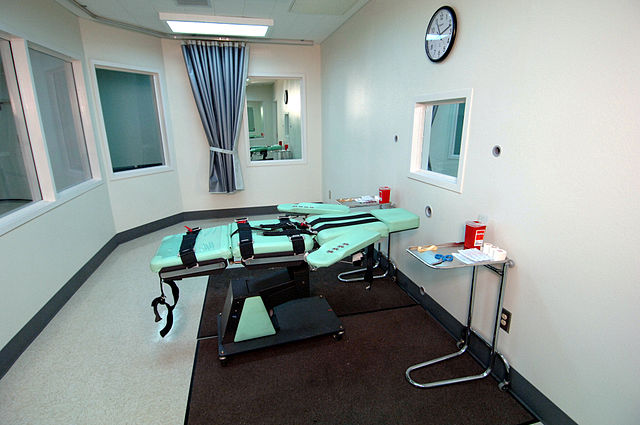Death row investigator speaks on mass incarceration
October 14, 2015
Non-fiction writer and ex-reporter Rene Denfeld has an interesting job. In her line of work, she meets people who society says shouldn’t be alive.
“Every year we take thousands of people and we erase them,” said Denfeld, to a group of approximately 35 students and faculty on Tuesday in Dean Hall. Denfeld was speaking as part of Central Washington University’s year-long dialogue on mass incarceration.
The United States is the world’s leader in the number of individuals currently in the prison system at 2.2 Million. This is a 500 percent increase over the past 30 years, according to the Sentencing Project website.
Denfeld and Chris Heard, a local photographer involved in the mass incarceration exhibit at Central, agreed convicts are generally not treated well – or like people at all – within American society.
“They are still humans,” Denfeld said. “They will go without human touch or fresh air for years and years and years.”
Denfeld said the most important aspect of her job was actually seeing and listening to the individuals she interviews. She added there is a fundamental human need to be seen and heard by other people.
During the hour-long question and answer discussion, Denfeld and Heard touched on topics such death penalty, mental health, and poverty in the United States.
However, the main event theme was the art and beauty found within the walls of prisons, whether it was people or the actual cells. Additionally, both Heard and Denfeld said their main motivation behind pursuing this topic was the reason why people do these crimes.
“‘Why?’ is the most important question,” Denfeld said. “We have a culture obsessed with crime and violence.”
She added that her job is to find out why people do terrible things to each other.
Additionally, Denfeld took her experiences as a death row investigator and spun them into a fictional tale called “The Enchanted.” The book delves into the yin and yang of good and bad, as well as beauty existing in horrendous situations.
She has also written for The Oregonian, The New York Times Magazine and the Philadelphia Inquirer. She has published three non-fiction books.
Some other important figures speaking at Central on mass incarceration and racial justice this year are: David Fathi, director of American Civil Liberties Union National Prison Project; Ta-Nehisi Coates, a journalist for The Atlantic magazine; and Fred D’Aguiar, an author who explores the social and historical roots of racial injustice in the United States and Caribbean.




Diane Laplante Diane 218-216-4487 • Apr 9, 2022 at 9:54 am
??